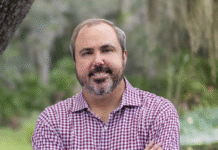Employee silence is a strong symptom of organizational dysfunction. Healthy, robust, and respectful discussion produces the best ideas and solves problems. You need to seek out and hear all ideas and competing views. Silence and false consensus are the enemies of teamwork, success, and innovation.
Leaders must cultivate and sustain a culture where everyone can raise their hand and say:
“I made a mistake.”
“I have a new idea.”
“You made a mistake.”
Everyone has to feel free and safe to speak. We must debate ideas not attack people. Aim at the arguments not the person. Yes, you may hear some unworkable or less valuable ideas, but leaders will lose out on many productive suggestions without the right climate at work. As Steve Jobs once said, “We have wonderful debates here because the best ideas have to win.”
Few things will kill you as a leader like being surrounded by “yes” people. The job of your team is to tell you the truth. Your job is to ask and listen. Their role is not to affirm your ego. You need to know when you are in error (Abrashoff, 2002).
Attract, recruit, reward, retain, and promote those who tell you the truth. As Gregory Davis says, “If you agree with everything I say, I don’t need you.” The yes person cares about their career not yours. Poor leaders attract and retain yes people.
Good leaders don’t have all the answers and we know it. We just ask a lot of good questions. Ask and then actively listen. Everyone inside and outside the company has to be heard. This must be the culture you lead.
Research confirms the vast majority of the best ideas come from outside senior management.
Get out of the office, be an active listener, and create and sustain discussion. You never know from whom the next best idea will originate. Winning ideas know no title, tenure, position, or rank. On the U.S.S. Benfold, it was a twenty-one-year-old sailor who saved the United States Navy tens of millions of dollars a year and thousands of man hours with a simple suggestion to avoid having to repaint the entire fleet every ten months (Abrashoff, 2002).
More minds mean fewer errors, better reasoning, and greater successes. The worst performing companies and countries are where one supreme leader does all the thinking.
Never assume you know the answers. Assume you do not. If logic, evidence, and ethics validate your original idea, then you have lost nothing by having the discussion. If you were wrong and the discussion reveals it, you have been spared a potential crisis or costly mistake. Never fear the discussion. If you do and your idea is so bad it won’t survive scrutiny by others, that should tell you something.
Weak leaders love to hear themselves talk. Strong leaders love to hear from others.
#LeadershipLessonsWithDrSaviak

Image: Gladiator, IMDB














































